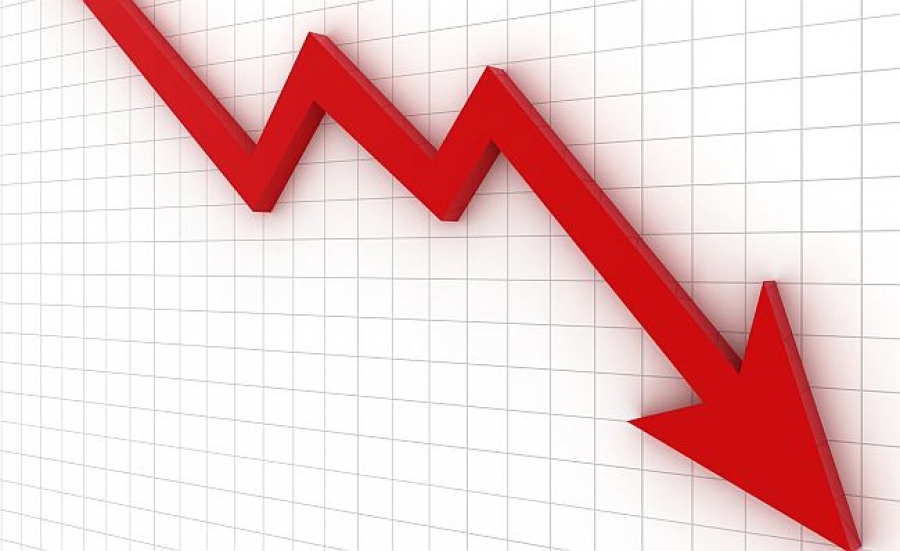Last year various Canadian governments took measures to slow down the booming housing market, imposing new taxes and strict mortgage qualification requirements. The governments feared that homeowners were sinking too far into debt and that runaway house prices in Vancouver and Toronto were unsustainable.
Some people who are struggling to get into the market say they hope there's a "housing crash" that will bring prices down to an affordable level. But a recent report by the British Columbia Real Estate Association (BCREA) says we should be careful what we wish for.
"The desire of some well-meaning British Columbians for government to drive down the price of homes through demand-side policy may sound practical at first blush. However, when you consider the broad and deep economic toll that a negative shock to home prices would exact on both homeowners and renters, it quickly becomes apparent that such an approach is at best, a mug's game."
The association estimates how much a shock of 10, 20 and 35 per cent on home prices would impact the economy.
"Nearly 70 per cent of British Columbian households own their home. A relatively minor 10 per cent negative shock to home prices would extinguish nearly $90 billion of their wealth, or $70,000 of the average homeowner's equity. While some may see this as a paper loss, it will have a significant impact on the economy, as declining household wealth reins in consumer spending. Retail sales would suffer, with an estimated $1.8 billion in forgone revenue in the first year after the shock," says BCREA.
The Canadian Real Estate Association (CREA) commissioned Altus Group to determine the impact of resale housing transactions on the economy. It says between the period of 2014 to 2016, $61,600 was spent in an average transaction on items other than the actual house and land.
This includes renovations, conducted both before the sale to make it more marketable and afterwards as homeowners tailored the property to their needs; new appliances and furnishings. It also includes fees to real estate agents, lawyers, appraisers, home inspectors and appraisers.
The ancillary spending added up to more than $31 billion per year across Canada.
CREA says that during the same period, 220,065 jobs are estimated to have been generated each year. "Canada-wide, the finance, insurance, real estate, construction and professional services sectors benefited the most from MLS system home sales," says CREA.
"If home prices fell 35 per cent, a level some activists are championing, the B.C. economy would collapse into recession," says BCREA. "The average homeowner would have lost $245,000 in equity, housing starts would fall by half, 64,000 jobs would be forfeited -- sending the unemployment rate to 7.5 per cent with $4.4 billion in forgone retail sales and a colossal $8 billion loss to GDP in the first year."
Not everyone agrees that a housing shock would have such a dramatic impact on the economy.
Laura Cooper, an economist with RBC Economists, wrote in 2017 that "tallying up the contributions of everything from the building of new homes to the costs of maintaining and running a home, housing-related expenditures climbed to a record 25 per cent share of the Canadian economy in 2016."
But she says not all that activity would be vulnerable to a downturn in sales, estimating that "close to 15 per cent of the economy has a degree of exposure to a drop in home sales, but only five per cent has a strong relationship."
Based on historic declines in housing, Cooper says the impacts on the economy "tend to be limited and occur over different stages of the housing cycle. This implies a one-time blow to the economy resulting from a sales slump is unlikely."
She says rising home prices make homeowners feel wealthier, contributing to all types of consumer spending. "Vehicle purchases, eating out at restaurants, spending on recreation, cultural events and financial services all have a tendency to slow somewhat against a backdrop of declining home sales, but tends to occur over a period of six to nine months following the beginning signs of a housing downturn," she says.
Cooper says although renovation activity is susceptible to a housing downturn, historically "the drop in the value of home renovations tends to be less pronounced than that of home sales, declining by about one-third of the sales drop."
But she adds, "There is always the risk that households pull back more on spending now than in past downturns given elevated levels of household debt and prospective increases in interest rates." She adds, "A broad 30 per cent drop in home resales, and attendant spillovers to building activity, house prices and consumer confidence could translate into a hit on the economy of one per cent to two per cent, with a drop in ownership transfer costs and new home construction accounting for two-thirds of the decline."

